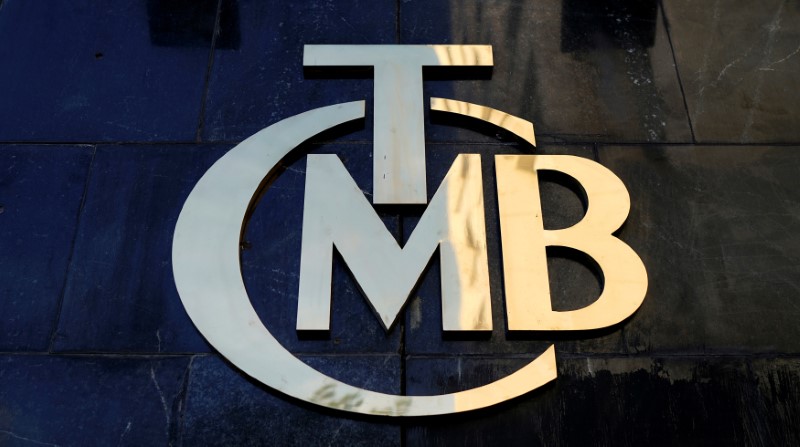 © Reuters. FILE PHOTO: A logo of Turkey’s Central Bank is pictured at the entrance of the bank’s headquarters in Ankara
© Reuters. FILE PHOTO: A logo of Turkey’s Central Bank is pictured at the entrance of the bank’s headquarters in AnkaraBy Behiye Selin Taner and Ali Kucukgocmen
ISTANBUL (Reuters) – Turkey’s central bank is likely to keep its main interest rate on hold at 24 percent this week, a Reuters poll showed on Monday, following a bigger-than-expected decline in November inflation.
All 20 economists polled by Reuters expect the CBRT central bank to keep its one-week repo rate steady at Thursday’s policy-setting meeting. Inflation last month eased to 21.6 percent after hitting a 15-year peak of more than 25 percent in October.
That was a bigger decline than the market had expected and is widely seen as giving the central bank some breathing room. The bank has been reluctant to hike interest rates, investors say, because of President Tayyip Erdogan’s drive for lowering borrowing costs.
“It would be a monumental mistake to ease policy,” said Per Hammarlund, chief economist for emerging markets at SEB. “Investor confidence is hanging by a thread, and a premature easing would further undermine the credibility of the CBRT.”
Concerns about the central bank’s independence and a diplomatic rift with the United States sparked a currency crisis this year, sending the lira down more than 40 percent against the dollar at one point and deepening concern about the wider impact on the economy and banks.
The currency has since recouped some losses, although it is still down nearly 30 percent this year. The relative strengthening in the lira, as well as lower oil prices and government-driven discounts on consumer products, have helped to slow inflation’s rise.
The central bank said last week it would stick with a 5 percent inflation target, a very ambitious goal that investors are not expecting to see met any time soon.
The central bank will announce its rate decision on Dec. 13 at 1100 GMT.
Fusion Media or anyone involved with Fusion Media will not accept any liability for loss or damage as a result of reliance on the information including data, quotes, charts and buy/sell signals contained within this website. Please be fully informed regarding the risks and costs associated with trading the financial markets, it is one of the riskiest investment forms possible.
Source: Investing.com




























